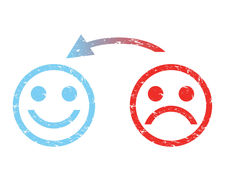Dgit brings Git to the Debian archive
Git Happy

© Lead Image © james weston, 123RF.com
Dgit combines the Debian archive with a Git repository, giving package maintainers some totally new options for managing Debian source packages.
Version management systems are a fundamental building block of professional software development. Many projects use Git [1], a version control tool created by Linux founder Linus Torvalds for the Linux kernel developer community. Git offers a distributed development environment with many benefits, such as revision management and flexibility with exchanging code, but it is difficult for a development project with large, legacy archives to interface with the Git environment. A helpful tool known as dgit brings the power of Git to the entire Debian archive. See Table 1.
Dgit which was created by Ian Jackson, treats the whole Debian archive as a version control system and serves as a "bidirectional gateway between the archive and Git." Dgit [2] lets users load arbitrary source packages from the archive into a local Git repository, then work on them with Git techniques, and finally build the binaries (Figure 1). Package maintainers can use dgit to feed their changes back into the Debian archive.

[...]
Buy this article as PDF
(incl. VAT)